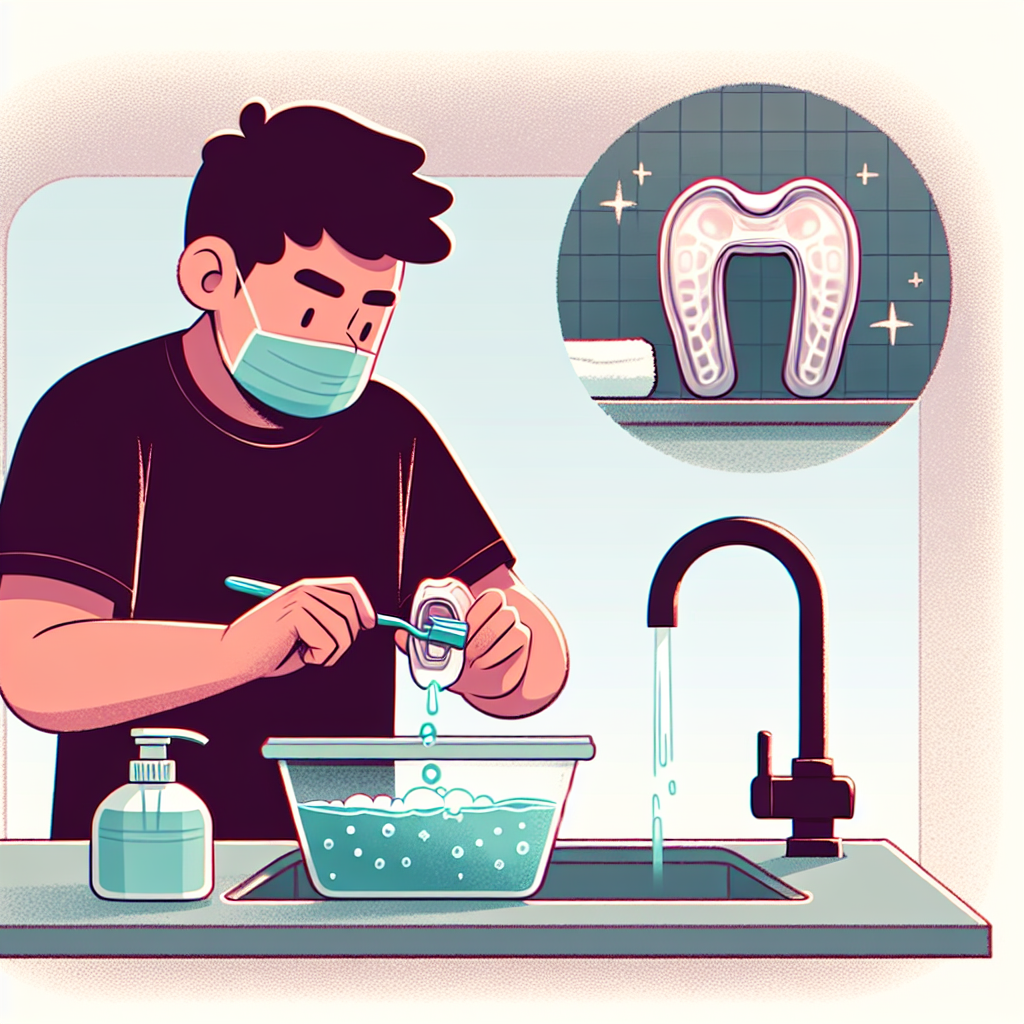Importance Of Clean Mouthguards
Cleaning a mouthguard is essential to prevent the buildup of bacteria and fungi, which can lead to oral infections and bad breath. A dirty mouthguard can also affect the taste of food and beverages and may cause skin irritation around the mouth. Regular cleaning not only maintains oral hygiene but also prolongs the lifespan of the mouthguard.
The Consequences Of Neglecting Mouthguard Cleaning

Neglecting to clean your mouthguard regularly can have detrimental effects on your oral health. Dr. Smith, a renowned dentist, emphasizes, “Failure to clean your mouthguard can result in the accumulation of harmful bacteria, leading to infections and foul odor.” It is paramount to establish a daily mouthguard cleaning routine to avoid these consequences.
Daily Mouthguard Cleaning Routine
Maintaining a daily cleaning routine for your mouthguard is simple and can be seamlessly integrated into your daily oral hygiene practices. Here’s a step-by-step guide on how to clean a mouthguard effectively:
-
Rinse After Use: After each use, rinse your mouthguard with cold water to remove any saliva or debris. Dr. Jones, a sports dentist, advises, “Rinsing your mouthguard immediately after use helps prevent the buildup of bacteria and makes the cleaning process easier.”
-
Brush with Mild Soap: Gently brush your mouthguard with a soft-bristled toothbrush and mild soap. Avoid using toothpaste as it can be abrasive and damage the mouthguard. Dr. Lee, a dental hygienist, suggests, “Brushing your mouthguard helps remove any remaining residue and maintains its cleanliness.”
-
Soak in Antiseptic Solution: Regularly soaking your mouthguard in an antiseptic solution helps kill bacteria and disinfect the guard. Dr. Patel, an orthodontist, recommends, “Soaking your mouthguard in a mixture of water and antiseptic solution for 15-20 minutes helps eliminate germs effectively.”
Best Practices For Mouthguard Care
In addition to daily cleaning, adopting best practices for mouthguard care can ensure optimal hygiene and longevity of your mouthguard. Consider the following tips for maintaining a clean mouthguard:
-
Store in a Ventilated Case: Store your mouthguard in a ventilated case when not in use to prevent the growth of bacteria in a damp environment.
-
Avoid High Temperatures: Refrain from exposing your mouthguard to high temperatures, as it can distort the shape of the guard. Dr. Garcia, a dental surgeon, cautions, “Avoid leaving your mouthguard in direct sunlight or hot water to prevent deformation.”
-
Regular Replacement: Replace your mouthguard as recommended by your dentist or manufacturer to ensure its effectiveness and hygiene. Dr. Green, a sports medicine specialist, advises, “Regularly inspect your mouthguard for signs of wear and tear and replace it promptly to maintain oral health.”
Disinfecting Your Mouthguard
Disinfecting your mouthguard periodically is essential to eliminate stubborn bacteria and ensure thorough cleaning. Follow these steps to effectively sanitize your mouthguard:
-
Boil and Cool: Boiling your mouthguard in water for a few minutes helps kill bacteria. Dr. Wang, a dental researcher, explains, “Boiling is an effective method to disinfect mouthguards, but ensure you allow it to cool before use to prevent damage.”
-
Use Mouthguard Cleaning Tablets: Consider using specialized mouthguard cleaning tablets or solutions for a deeper clean. Dr. Torres, a dental scientist, suggests, “Cleaning tablets are convenient and can effectively sanitize your mouthguard, providing an extra layer of protection.”
Final Considerations
Maintaining a clean mouthguard through a daily cleaning routine and proper care practices is essential for oral hygiene and overall health. Dr. Adams, a dental health expert, concludes, “Regular cleaning and disinfecting of your mouthguard not only prevent oral infections but also ensure its longevity and effectiveness.” By following these guidelines and incorporating them into your oral care regimen, you can enjoy a fresh and sanitized mouthguard for optimal protection and comfort.
